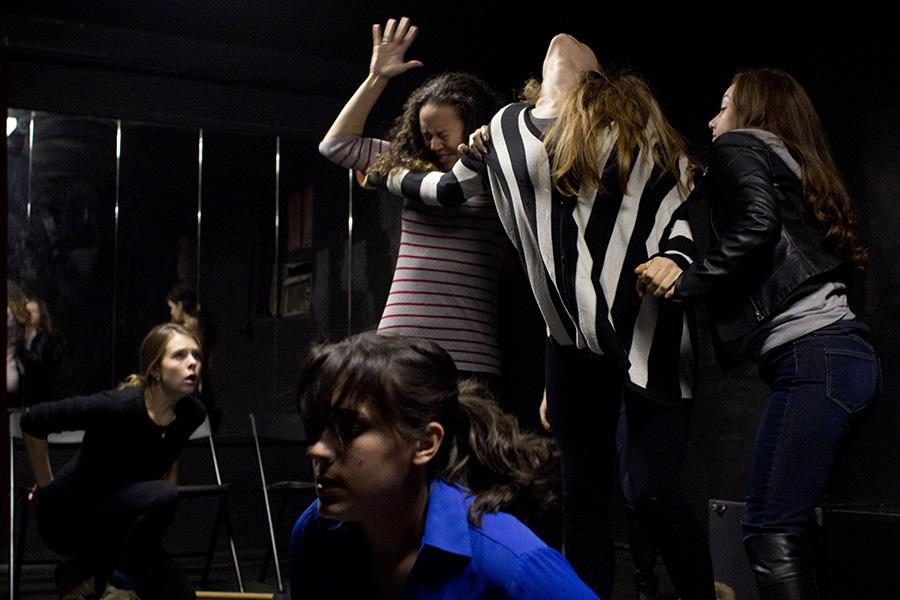All-female ‘Julius Caesar’ breaks gender lines
November 17, 2014
In an attempt to reflect on Roman contemporary politics and modern day interpretations of gender, the Gallatin School of Individualized Study’s Roman Tragedies Festival featured an all-female production of “Julius Caesar.”
The production was performed by the all-female Gallatin group, Show Us Womanish, created by junior Katherine Romans and alumna Ashley Thaxton.
“We are seven people who are working to tell a story that was written over 400 years ago about an event that happened over 2,000 years ago,” Romans said. “When people ask us ‘Why female?’ we say, ‘Why not?’”
The production’s name itself was inspired by a quote in “Julius Caesar,” which describes their eccentric collection of an all-female cast to present the male-dominated epic.
“One day we were in rehearsal and Cassius’ character spoke the lines, ‘And we are governed with our mother’s spirits; our yoke and sufferance show us womanish,’” Romans said. “We decided we liked the irony of the concept ‘show us womanish’ and began to call ourselves that.”
The group members hoped to be explicit about their transformations from female to male characters and embodying multiple roles.
“We decided very early on in our process that we did not want to hide any of our transformations from the audience,” Romans said. “We never wanted to deceive the audience or ‘pretend’ that we are not women … We are all performing ourselves and our performance sometimes changes depending on the context.”
The members said acting out certain relationships with a unisex cast replaces the gendered perspectives of the play with humanist ones.
“It allows people to see these stories as human stories and not gendered ones,” Romans said. “The two women characters in this play, Portia and Calpurnia, are married to Brutus and Caesar, and we see the experiences of those two couples as really universal to the experiences of both men and women in relationships.”
Thaxton noted that the production had a positive response on opening night.
“We received really great feedback from our audiences, particularly about how we were able to communicate the text and the story, which was very validating to hear,” Thaxton said.
CAS freshman Alice Zhu is appreciative of the unconventional manner in which the female cast presents the play.
“I believe this production is one of the most creative spins on a Shakespeare play that mostly features male characters,” Zhu said. “I am really impressed by how the ‘manliness’ of the characters are not lost despite the fact that the entire cast is female.”
This “Julius Caesar” production’s uniqueness will continue to gather interest, as the troupe intends to perform in January 2015 at the Lineage Performing Arts Center, located in Pasadena, California. Although they are uncertain about their plans after, members of Show Us Womanish hope to continue their work on Shakespeare plays.
“We are not sure where Show Us Womanish will go next, but we don’t think that the journey will end here,” Romans said. “We hope to all continue working together in the future.”
A version of this article appeared in the Nov. 17 print edition. Email Dhriti at [email protected].















































































































































